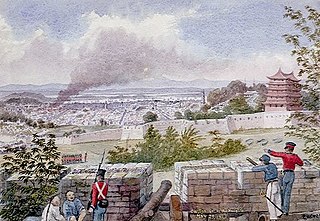 W
WThe Opium Wars were two wars waged between the Qing dynasty and Western powers in the mid-19th century. The First Opium War, fought in 1839–1842 between the Qing and the United Kingdom, was triggered by the dynasty's campaign against the opium trade; the Second Opium War was fought between the Qing and Britain and France, 1856–1860. In each war, the European forces used recently developed military technology to defeat the Qing forces, and compelled the government to grant favorable tariffs, trade concessions, and territory.
 W
WThe Convention or First Convention of Peking is an agreement comprising three distinct treaties concluded between the Qing dynasty of China and Great Britain, France, and Russian Empire in 1860. In China, they are regarded as among the unequal treaties. The Ministry of Foreign Affairs of the Republic of China keeps the original copy of the convention in the National Palace Museum in Taiwan.
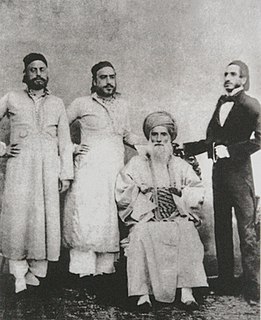 W
WDavid Sassoon & Co., Ltd. was a trading company operating in the 19th century and early 20th century predominantly in India, China and Japan.
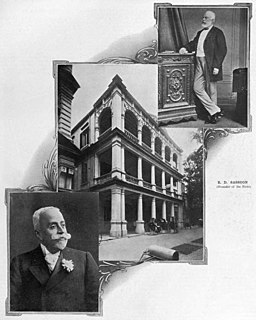 W
WE.D. Sassoon & Co., Ltd. was a trading company operating in the second half of the 19th century and the first half of the 20th century predominantly in India, China and Japan.
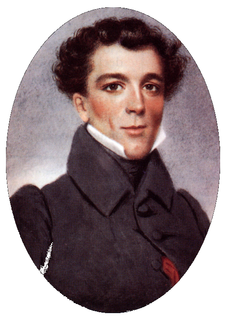 W
WCaptain Robert Bennet Forbes, was an American sea captain, China merchant and ship owner. He was active in ship construction, maritime safety, the opium trade, and charitable activities, including food aid to Ireland, which became known as America's first major disaster relief effort.
 W
WJardine Matheson & Co., later Jardine Matheson & Co. Ltd., forerunner of today's Jardine Matheson Holdings, was a Far Eastern company founded in 1832 by Scotsmen William Jardine and James Matheson as senior partners. Trafficking opium in Asia, while also trading cotton, tea, silk and a variety of other goods, from its early beginnings in Canton, in 1844 the firm established its head office in the new British colony of Hong Kong then proceeded to expand all along the China Coast.
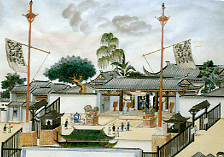 W
WHoppo or Administrator of the Canton Customs (t 粵海關部, s 粤海关部, p Yuèhǎi Guānbù;), was the Qing dynasty official at Guangzhou (Canton) given responsibility by the emperor for controlling shipping, collecting tariffs, and maintaining order among traders in and around the Pearl River Delta from 1685 to 1904.
 W
WSir Jamsetjee Jejeebhoy, 1st Baronet Jejeebhoy of Bombay, CMG, also spelt Jeejeebhoy or Jeejebhoy, was a Parsi-Indian merchant and philanthropist. He made a huge fortune in cotton and the opium trade with China. He was considered Bombay's most worthy son.
 W
WImperial Russia was a participant of the Chinese Opium Wars, more specifically in the second and third wars which occurred in 1856-1860. Russia played a role of mediator, being both an ally with Britain, France, and the United States and negotiator with the elites of the Qing dynasty. Throughout the whole war period Russia provided minimal amount of military aid and used diplomatic power to present its interests in the conflict. As a result of the ratified agreements in 1860 Russia received former Manchurian lands along the Ussuri river and increased its economical influence on China.
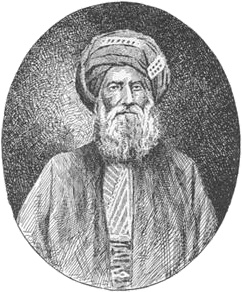 W
WDavid Sassoon was the treasurer of Baghdad between 1817 and 1829. He became the leader of the Jewish community in Bombay after Baghdadi Jews emigrated there.